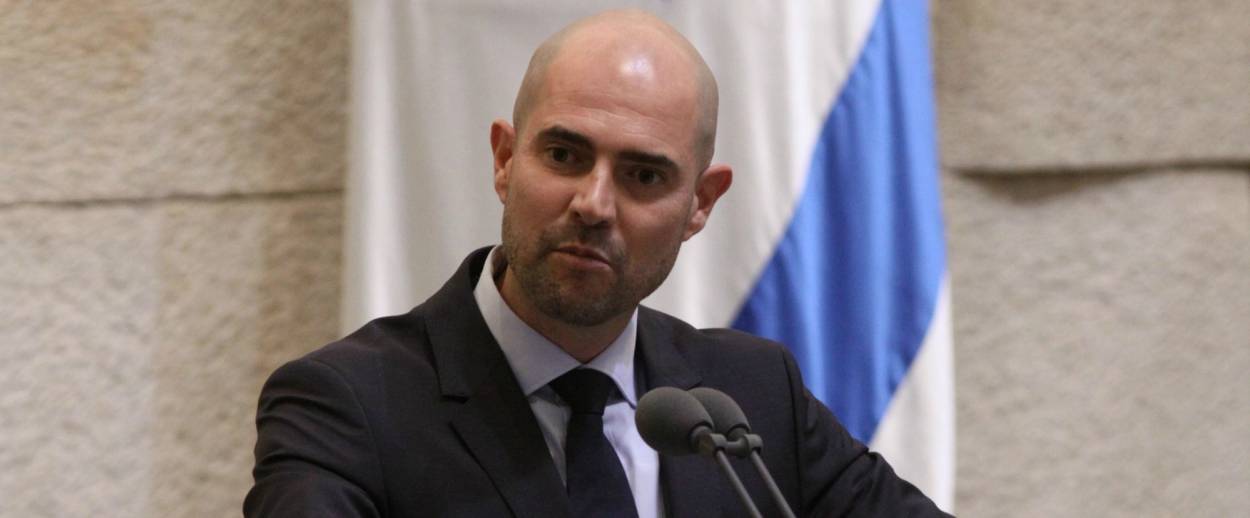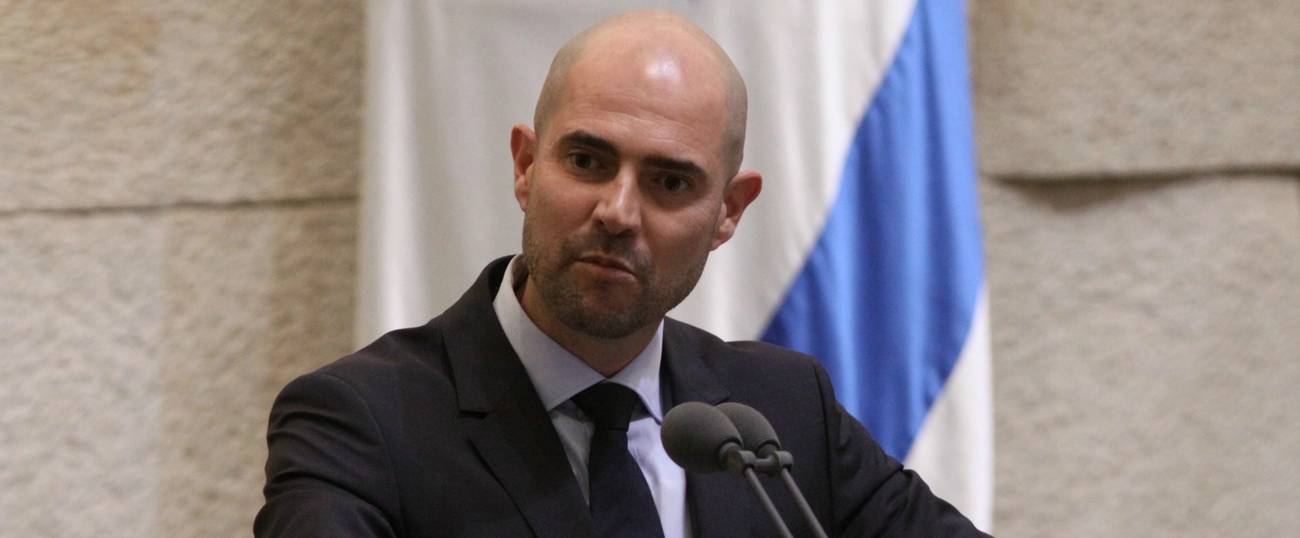As the Israeli Government Bans Same-Sex Adoptions, Likud’s Only Openly Gay MK Speaks UP
Threatening to vote against the government unless the decision is reversed, Amir Ohana nevertheless advocates looking at the bigger picture




The Israeli government set off a firestorm this week when it announced, in response to a Supreme Court petition, that it was opposed to allowing same-sex couples to adopt children. The announcement drew widespread scorn,
not least for the reasoning that adoption by same-sex couples would place an “additional burden” on the children in question. Same-sex couples have officially been able to adopt in Israel since 2008, but the welfare services prioritize straight couples and make the process virtually impossible for aspiring same-sex parents.
Some prominent gay Israelis were so upset by the state’s decision that they proposed even more dramatic action to overturn it. The popular singer Harel Skaat, for example, urged gay youth not to enlist in the army or pay taxes. “Don’t give a **** about any obligation the state asks you to fulfill,” he wrote in an emotional Facebook post, “because the state doesn’t give a **** about you when it comes to the equal rights(!!!!) you deserve.”
Such responses, said Amir Ohana, were unreasonable.
The current conflict’s man of the hour, Ohana is the first and only openly gay member of Likud. A former officer in the Shin Bet and a hawk when it comes to national security, he’s the first prominent gay Israeli not to be identified exclusively with the left. And in an exclusive interview with Tablet Magazine, he called Israel’s adoption policy “a historic injustice” that must be corrected, while also urging a sense of perspective, arguing passionately that Israel remains one of the world’s most gay-friendly countries.
Earlier this week, Ohana announced that he would refuse to vote with the government until it made adoption policy fully egalitarian for LGBT couples. Lawmakers are expected to respect coalition discipline, but Ohana effectively said he was willing to endanger government legislation to achieve adoption equality. He expects to win. “This isn’t a question of legislation, because I know we can’t pass legislation because of the ultra-Orthodox and religious Zionists,” he explained. Instead, he is calling for an administrative decision that would remove de facto discrimination from the enforcement of existing laws.
Israel’s record on LGBT takes pride of place in the country’s self-promotion abroad, in an effort that critics dismissively call “pinkwashing”. But despite his criticisms, Ohana is adamant that Israel should not change its messaging just because the situation is not perfect. “I don’t buy this disgusting left-wing, Israel-hating argument that Israel should downplay [its LGBT record] or be ashamed of the way it treats LGBT people,” he insists, suggesting that certain opponents would prefer that Israel not be “open, free, and liberal” just so that it could not present itself as such.
“If only countries in our region would hold a pinkwashing competition!” he exclaims. “I’d love to see more countries taking pride in how they treat the LGBT community, but instead I see they throw them from rooftops and hang them.”
Ohana criticizes Israelis for their tendency to lament their own situation as terrible, arguing that despite its faults, Israel compares favorably not just to the Middle East but to the West as a whole. Take surrogacy, a topic close to Ohana’s heart—he and his partner recently had twins through a surrogate abroad. Most countries, the US and Canada being exceptions, do not allow gay couples to use surrogates, putting Israel on par with much of the rest of the Western world in that respect, even though, Ohana added, “there’s more work to do”.
“There is no substantive difference,” Ohana insists, “between what Israel says about itself [on LGBT rights] and reality.” I draw his attention to a widely circulated page on the Israeli Foreign Ministry website, which claims that “full adoption rights [were] granted to gay couples” in 2008. Ohana declines to call the Foreign Ministry’s claim is false, saying instead that there is “no equality” in the way those rights are delivered, even though they formally exist.
Civil rights in Israel came back on the radar of Diaspora Jews this month with the cancellation of the plan for an egalitarian plaza at the Western Wall. Do Diaspora Jews have a role to play in lobbying for greater LGBT rights in Israel as well? Ohana says concerned Diaspora Jews have every justification to be involved—but the final say must be reserved to the democratic Israeli citizenry. “Israel is a democratic and sovereign country,” he says, “and it’s the citizens who decide in the end of the day… because they’re the ones who live here with the consequences.”
“I don’t know many countries that have full equality,” he says ironically, but predicts confidently that “Israel is on a positive track”, calling it a “process of evolution rather than revolution.” If his threat to boycott government legislation in the Knesset is successful, that process of evolution could yet experience a path-breaking evolutionary leap towards greater equality.
Eylon Aslan-Levy is an Israeli news anchor and political commentator. He is a graduate of Oxford, Cambridge and the IDF.